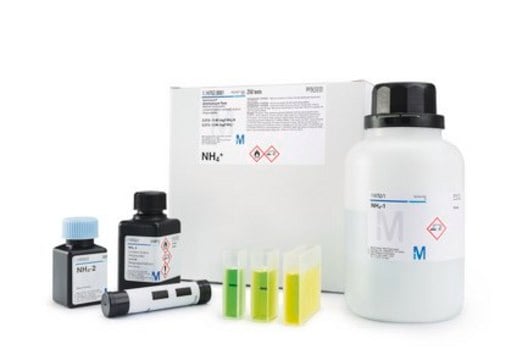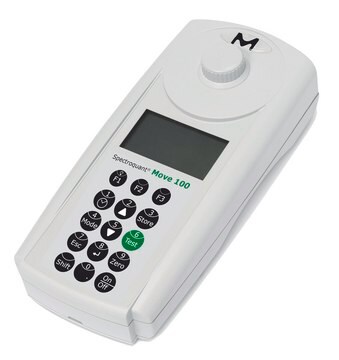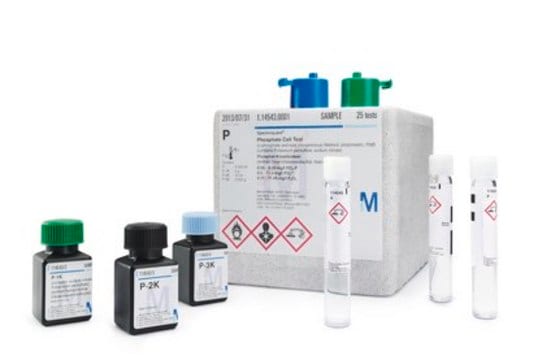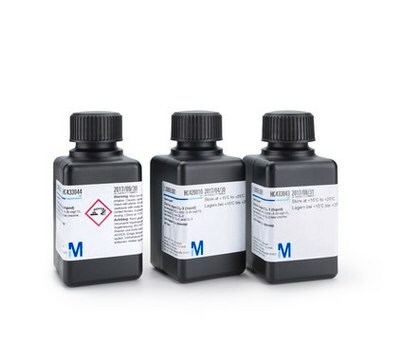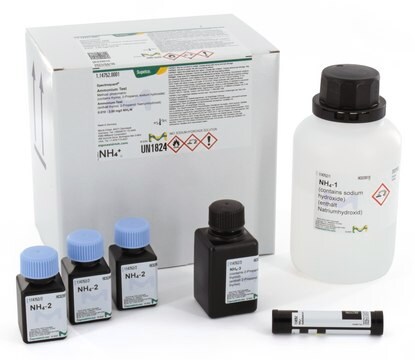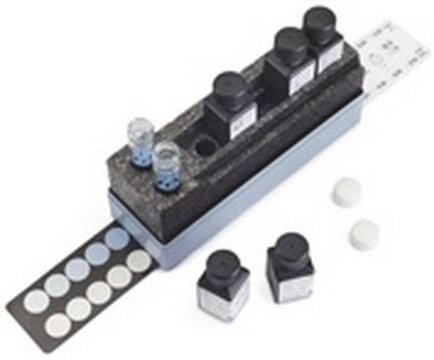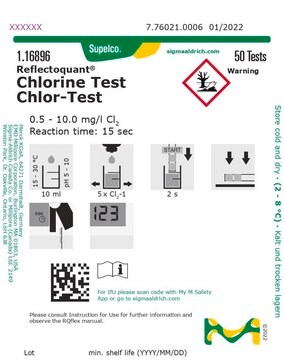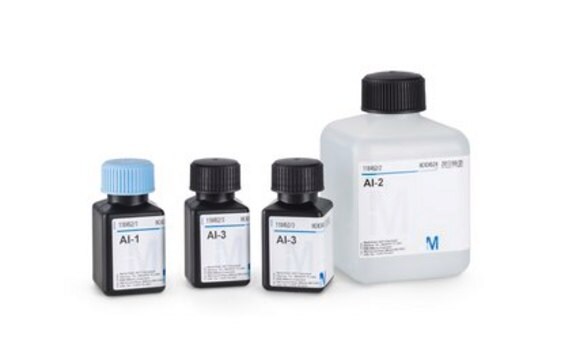1.00598
Chlorine Test, photometric
photometric, 0.010-6.00 mg/L (Cl2), Spectroquant®
About This Item
Recommended Products
product name
Chlorine Test, photometric, 0.010-6.00 mg/L (Cl2), Spectroquant®
Quality Level
product line
Spectroquant®
usage
sufficient for 1200 tests (free chlorine)
sufficient for 200 tests (depending on package size)
specific analyte(s)
chlorine
measuring range
0.010-6.00 mg/L (Cl2)
technique(s)
photometry: suitable
compatibility
for use with Spectroquant® Move 100
for use with Spectroquant® Move DC
for use with Spectroquant® Nova 60 A
for use with Spectroquant® Prove 100
for use with Spectroquant® Prove 300
for use with Spectroquant® Prove 600
detection method
photometric (DPD)
storage temp.
15-25°C
General description
This Spectroquant® Chlorine test allows the accurate quantification of chlorine in various waters. Chlorinated disinfectants are still in common use all over the world, their major applications being in the chlorination of drinking water and swimming pools. In weakly acidic solution free chlorine reacts with dipropyl-p-phenylenediamine (DPD) to form a red-violet dye that is determined photometrically.
The method is analogous to EPA 330.5, APHA 4500-Cl2 G, and DIN EN ISO 7393-2.
All our Cell and Reagent Test Kits are equipped with the unique Live ID (2D barcode) which allows seamless method recognition and contains essential information such as lot number, expiry date, and automatic calibration updates.
The Spectroquant® Reagent Test Kits contain highly stable, ready-to-use reagent mixtures to perform the analysis according to the procedure described in the accompanying instruction leaflet.
Legal Information
Signal Word
Danger
Hazard Statements
Precautionary Statements
Hazard Classifications
Eye Irrit. 2 - Repr. 1B
Storage Class Code
6.1D - Non-combustible acute toxic Cat.3 / toxic hazardous materials or hazardous materials causing chronic effects
Certificates of Analysis (COA)
Search for Certificates of Analysis (COA) by entering the products Lot/Batch Number. Lot and Batch Numbers can be found on a product’s label following the words ‘Lot’ or ‘Batch’.
Already Own This Product?
Find documentation for the products that you have recently purchased in the Document Library.
Customers Also Viewed
Articles
Learn about disinfection control and how to select the right disinfectant among the various options available in its methods and instrumentation based on photometry and reflectometry.
Protocols
Spectrophotometric determination of iodine with dipropyl-p-phenylenediamine (DPD) in drinking water, wastewater, and disinfection solutions in a range of 0.050 – 10.00 mg/L.
Spectrophotometric determination of bromine with dipropyl-p-phenylenediamine (DPD) in drinking water, swimming-pool water, wastewater, and disinfection solutions in a range of 0.020 – 10.00 mg/L.
AQA Standard for free chlorine - Preparation of a standard solution for free chlorine
Preparation of a standard solution for free Chlorine according to DIN EN ISO 7393
Related Content
HACCP Disinfection control within the food & beverage industry is critical to ensure product safety and meet regulatory compliance. We offer an extensive range of products used in disinfection control and hygiene monitoring processes for food & beverage manufacturing.
Our team of scientists has experience in all areas of research including Life Science, Material Science, Chemical Synthesis, Chromatography, Analytical and many others.
Contact Technical Service